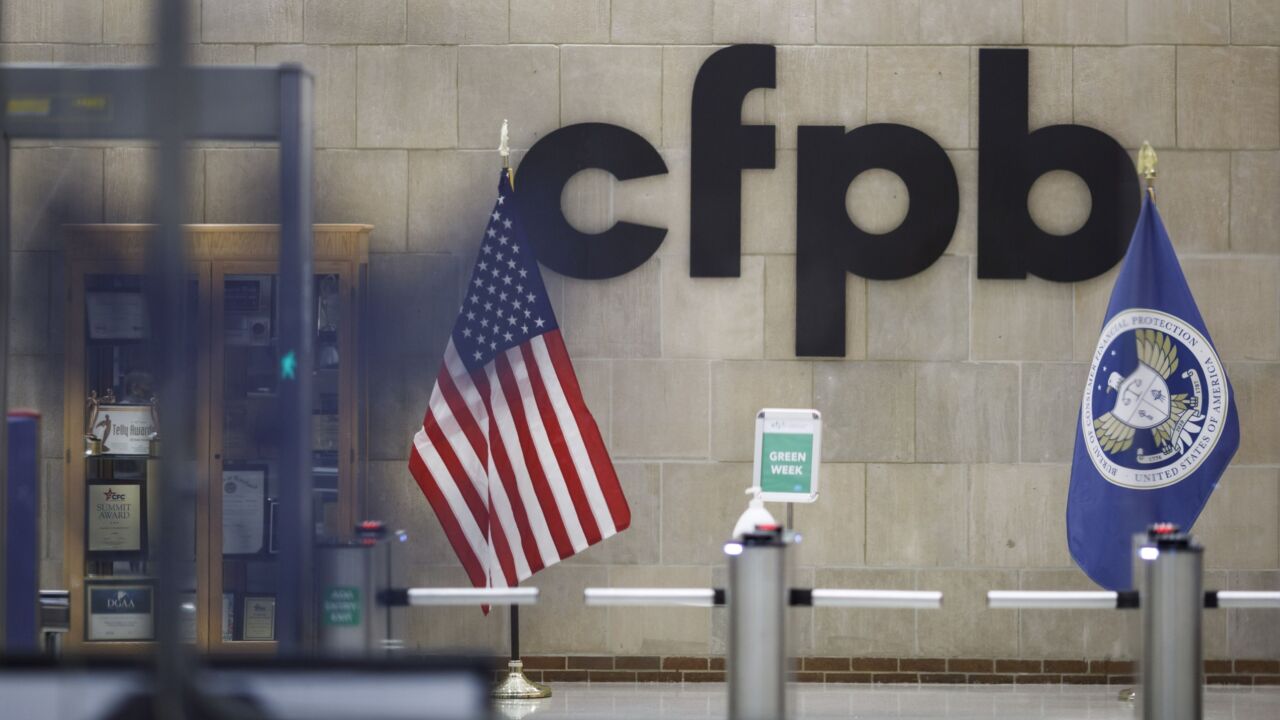-
The $1 billion bond, which follows similar issuances by Citigroup, JPMorgan Chase, Bank of America and Truist Financial, gives a big role to broker-dealers owned by minorities, women and disabled veterans.
May 19 -
Issuance of capital market instruments aimed at protecting one government-sponsored enterprise from distressed mortgage credit events staged a relatively quick rebound in 2020, a new Federal Housing Finance Agency report shows.
May 18 -
With little transitional disruption, the bigger players on the non-agency side could gain a hefty share of non-owner-occupied mortgage volume as a result of Fannie Mae and Freddie Mac’s caps on such purchases, a KBRA analysis finds.
May 17 -
Flatt said the combination of strong markets and asset sales means there’s enough capital on hand for its planned $6.5 billion privatization of Brookfield Property Partners LP, and the repurchase of its own shares, to soak up some of the new equity being issued in the transaction.
May 13 -
While the product was hard to find after the start of the pandemic, the Consumer Financial Protection Bureau’s recent changes to Appendix Q are giving a pair of large wholesalers the chance to offer it as a qualified mortgage.
May 10 -
Only $89 billion of the $362 billion in new single-family volume came from purchase mortgages.
April 29 -
The Consumer Financial Protection Bureau has moved ahead with an earlier proposal to postpone the full adoption of the qualified-mortgage ability-to-repay rule, citing a need to maximize borrowers' credit access.
April 28 -
The mortgage real estate investment trust has been a first-mover regarding innovations in the private securitized market, and others tend to follow its lead.
April 19 -
The diverse group of loans in the servicing rights portfolio offers a potentially attractive recapture opportunity and would be a sizable transaction for their era.
April 12 -
Treasury Secretary Janet Yellen said she prefers to have the Financial Stability Oversight Council flag hazardous activities by nonbanks rather than subject specific firms to heightened supervision.
March 24 -
Volumes were at a record high in the final quarter of 2020 but lenders didn’t make quite as much since gains on loan sales to the secondary market fell.
March 23 -
The company is still searching for someone to fill the roll on a full-time basis, but the $600,000 annual salary cap may limit the candidate pool.
March 16 -
The government-sponsored enterprise announced Wednesday it will change eligibility criteria for vacation homes and investor properties starting April 1 to fulfill a directive by former Treasury Secretary Steven Mnuchin.
March 11 -
The $16.9 billion in issuance marked the biggest annual number seen since the government-sponsored enterprise reconstituted its risk sharing program in 2013.
February 23 -
The deal definitively ends a monthslong war of words between the data provider and stakeholders who attempted a hostile takeover.
February 4 -
January’s excess return came in at a level well above the trailing average for the month, thanks in large part to a helpful hand from the Federal Reserve.
February 2 -
Issuance of securitizations backed by these loans is becoming more dependable, and Fannie will need more mortgages that finance newly-built energy-efficient homes to keep it going.
February 1 -
The transaction consisting of $24 million in securitized Ginnie pools followed a 265% jump in broader industry eNote registrations last year.
January 29 -
The Financial Stability Oversight Council could determine that a broad range of mortgage companies should be subject to “heightened prudential standards,” said Andrew Olmem, a partner at Mayer Brown and a former senior economic adviser to the White House.
January 25 -
Upcoming changes to underwriting regulations, as well as the end of the QM patch, in addition to growing home values, all add up for this market to have a good year.
January 19



















